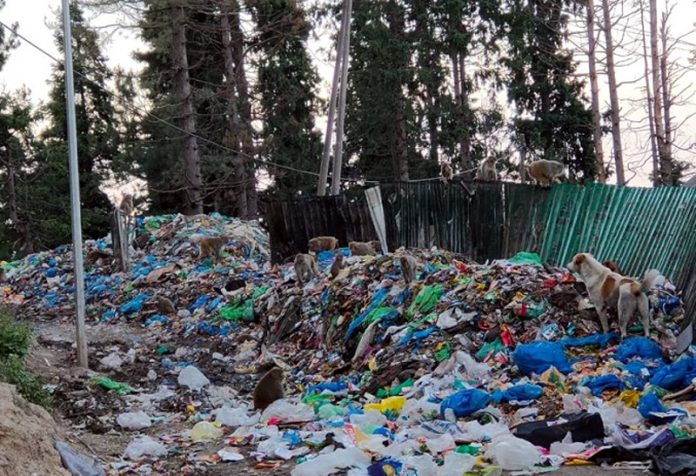Gap of 386.41 MLD in sewage generation, treatment
No funds allocated to ULBs for sewage, solid waste mgmt
Mohinder Verma
JAMMU, Dec 30: Jammu and Kashmir is adding 1026 tonnes per day to the legacy waste and leaving 386 megaliters (MLD) of sewage untreated thereby causing irreparable damage to the environment and leaving enough chances for serious health issues by polluting the land, water and air.
Follow the Daily Excelsior channel on WhatsApp
As per the official data regarding solid waste management, the copy of which is available with EXCELSIOR, there is a huge gap in waste processing in the Jammu region. Out of 657 tonnes per day (TPD) of waste being generated, only 87.14 TPD is processed resulting in a gap of 570.26 TPD. In the Kashmir region, the gap in waste processing is 456.02 TPD as waste generation is 760.12 TPD and possessing is only 304.1 TPD.
Total waste generation in UT of J&K is 1472.52 TPD and processing is 446.24 thereby 1026.28 TPD is being added to the legacy waste every day, which as per the environmentalists is leaving adverse impact on the environment.
“Legacy waste is municipal solid waste that has been stored in landfills or on barren land for a long time and such a waste pollutes the air, water and soil. Moreover, unscientific landfills emit greenhouse gases, generate leachates and pollute groundwater”, they said while expressing concern over lack of facilities to scientifically dispose of such a huge quantity of solid waste.
As far as sewage management is concerned, the data reveals gap of 386.41 MLD in estimated sewage generation and its treatment. This is mainly because the Sewage Treatment Plants (STPs) are treating 88.04 MLD against installed capacity of 152.59 MLD.
While dealing with the issue, the National Green Tribunal has observed, “for the processing of biodegradable waste, reliance is on the setting up of composting facilities. However, we find that, except for Srinagar, Jammu, Kathua, Katra, Anantnag, Baramulla, Ganderbal and Sopore, all Urban Local Bodies (ULBs) generate less than 10 TPD of waste which can be quickly taken care of by setting up decentralized and community- common composting facilities”.
As UT of J&K claimed before the NGT that residues and rejects are subjected to landfills at Jammu and Srinagar and for other Urban Local Bodies, a cluster approach will be adopted for land-filling, the green panel stressed that land-filling option should be opted as a last resort, adding “rejects and residues need to be properly reused/recycled and only qualified material as per the Municipal Solid Waste Rules should be land-filled”.
“We also find that Refuse Derived Fuel (RFD) is being land-filled and no disclosure has been made for its proper utilization and linkages with users like cement plants etc”, the NGT said.
Pointing towards sewage management data, the green panel said, “untreated sewage or treated which is not fully complying, is being discharged into water bodies thereby affecting their sanctity. The STPs, besides not meeting Fecal Coliform norms, are also under-utilized or over-utilized. Further, no reasons have been disclosed for the non-operation of STPs at Bhagwati Nagar Jammu (27 MLD and 10 MLD).
“There is no preparedness to hasten the process of setting up sewage management facilities and rather lengthy timelines are contemplated. The Union Territory of J&K should have standardized treatment packages for STPs and their installation”, the NGT said, adding “we don’t find allocations with respect to each Urban Local Body for sewage and solid waste management and this should be done as early as possible”.
Seeking fresh action taken report from the Government of Union Territory of Jammu and Kashmir about compliance of Municipal Solid Waste Management Rules and other environmental norms, the NGT said, “the next report should disclose sewage and solid waste management by major conglomerated centres and methods adopted by them and their performance”.


